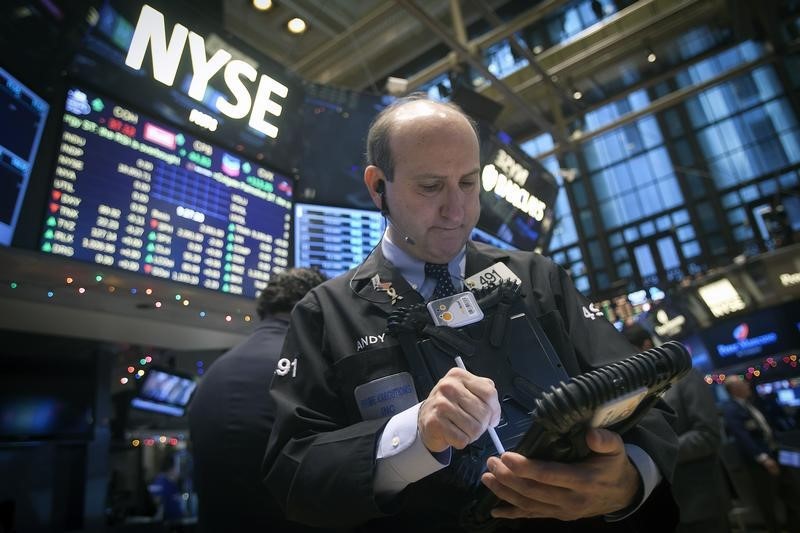By Chuck Mikolajczak
NEW YORK (Reuters) - Investors will rake in more than $1 trillion in 2015 as U.S. companies increase stock buybacks and boost dividends, Goldman Sachs Group Inc (NYSE:GS) said, with benefits coming soon as many S&P 500 companies exit a blackout period for repurchases next week.
The firm forecasts an 18 percent jump in buybacks and 7 percent climb in dividends for the year.
"Corporate activity in early 2015 supports our view that the S&P 500 will return more than $1 trillion of cash to investors this year," said David Kostin, chief U.S. equity strategist at Goldman in New York said in an April 24 note to clients.
Next week more than 80 percent of the Standard & Poor's 500 market cap companies will have exited the "blackout period" in which share repurchases are put on hold prior to quarterly results announcements.
Companies that make those cash infusions see an automatic increase in their per-share earnings and dividend yield, Goldman noted. That tends to raise their share prices, which will bolster the broader market, it added.
Goldman has highlighted Allstate Corp (N:ALL), Apple Inc (O:AAPL) and Northrop Grumman Corp (N:NOC) as cash-rich companies likely to repurchase their own shares. Apple announced on Monday a $50 billon boost to its buyback authorization and an 11 percent increase to its quarterly dividend.
Cohanzick Management in New York, which runs a strategy that focuses on shorting investment grade bonds that would be hurt by buybacks and dividends, said it is watching McDonald's Corp (N:MCD) and Monsanto Co (N:MON), among others.
Investors who short a financial instrument borrow it to sell while betting that the price will drop, so they can buy it back for less to repay the lender and pocket the difference.
"It's certainly logical at this point having reported their quarterly numbers for them to now be back in the market through their share buyback program," said Bruce Falbaum, a principal at Cohanzick.
McDonald's posted quarterly earnings on April 22 and said in May it planned to return $18 billion to $20 billion to shareholders through stock repurchases and dividends over the next two years. Monsanto, which announced a $10 billion share repurchase plan in June 2014, reported earnings on April 1.
BUYBACKS NOT A PANACEA
The lift from buybacks could fuel an extended rally, or at least continue to keep a floor under equities as companies pursue them more aggressively. Data from Birinyi Associates in Westport, Connecticut, suggest no slowdown in corporate buybacks, with $337 billion in stock repurchase plans announced through April 24, well above the $251 billion through the same period last year.
But as buybacks increase, investors may want to exercise restraint in chasing companies with large repurchase programs. Goldman notes that with high valuations and a strong dollar, corporate cash may best be used overseas instead of on share repurchases.
Tobias Levkovich, chief U.S. equity strategist at Citigroup (NYSE:C) in New York, cautions that while buybacks affect stock prices, they are not the only piece of the puzzle.
"It's a little bit optimistic to believe that you can define the moves in stocks purely on the basis on stock buyback activity," said Levkovich.
"It's too neat a package to tie up and tie a little bow around of and say 'perfect.' I wish it were that easy."
